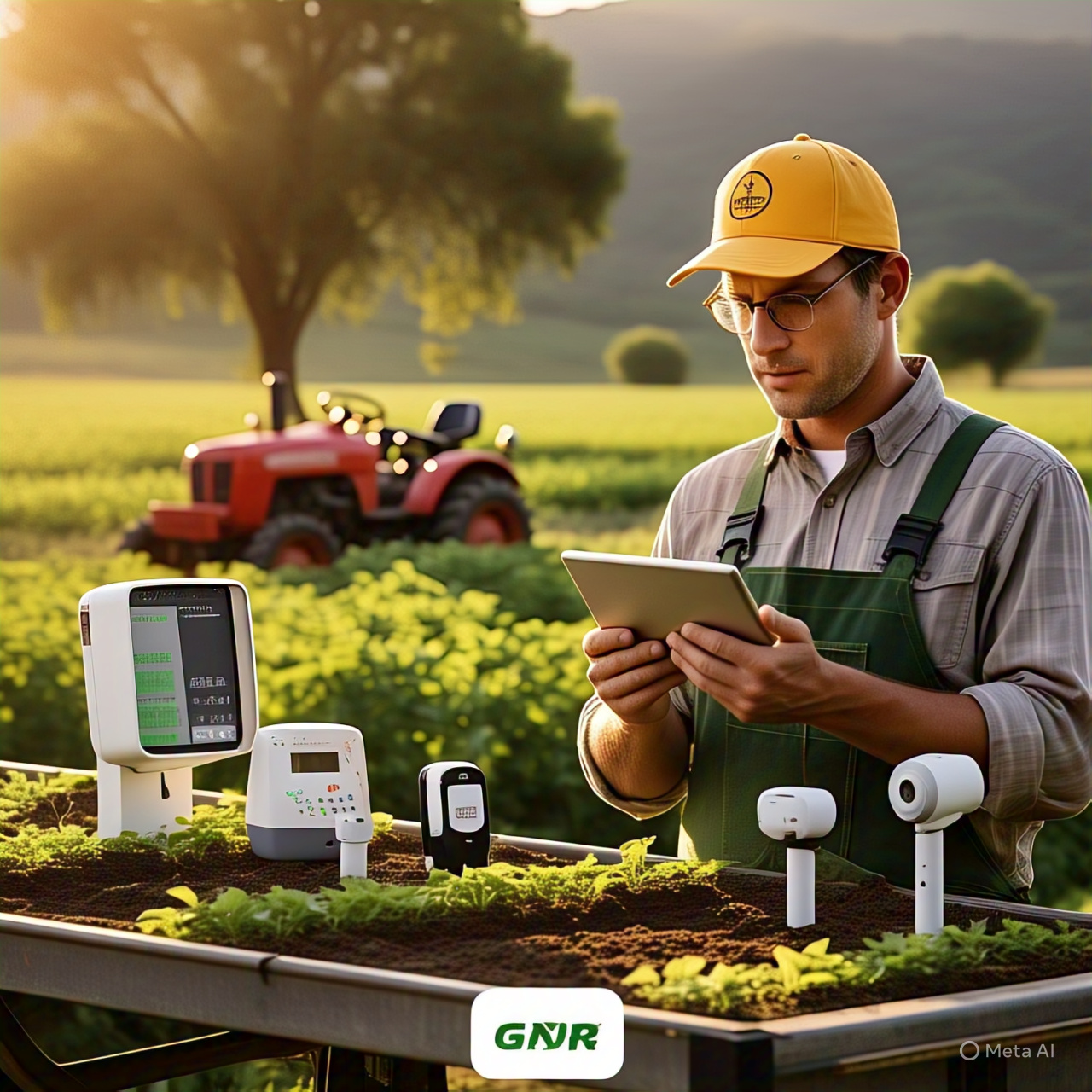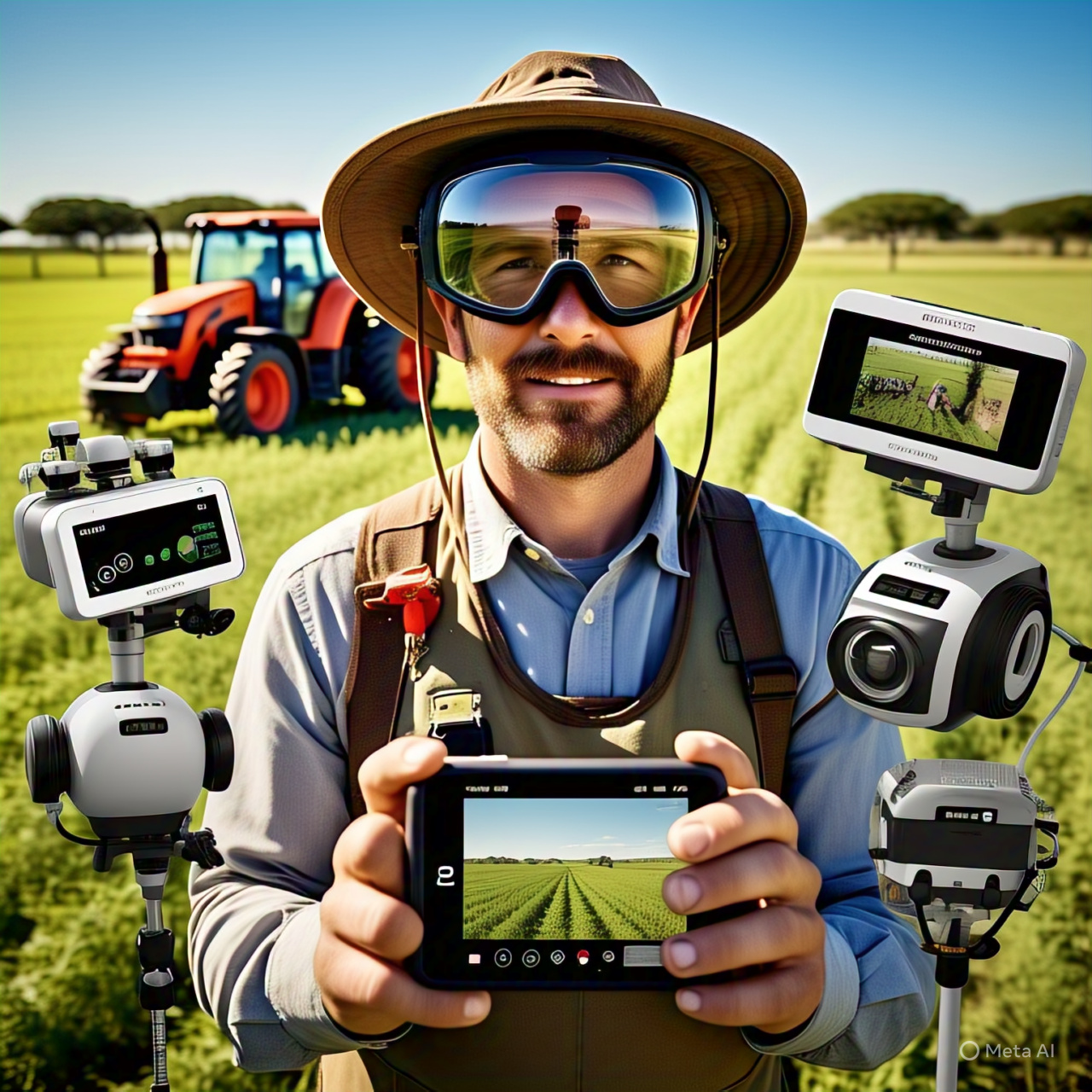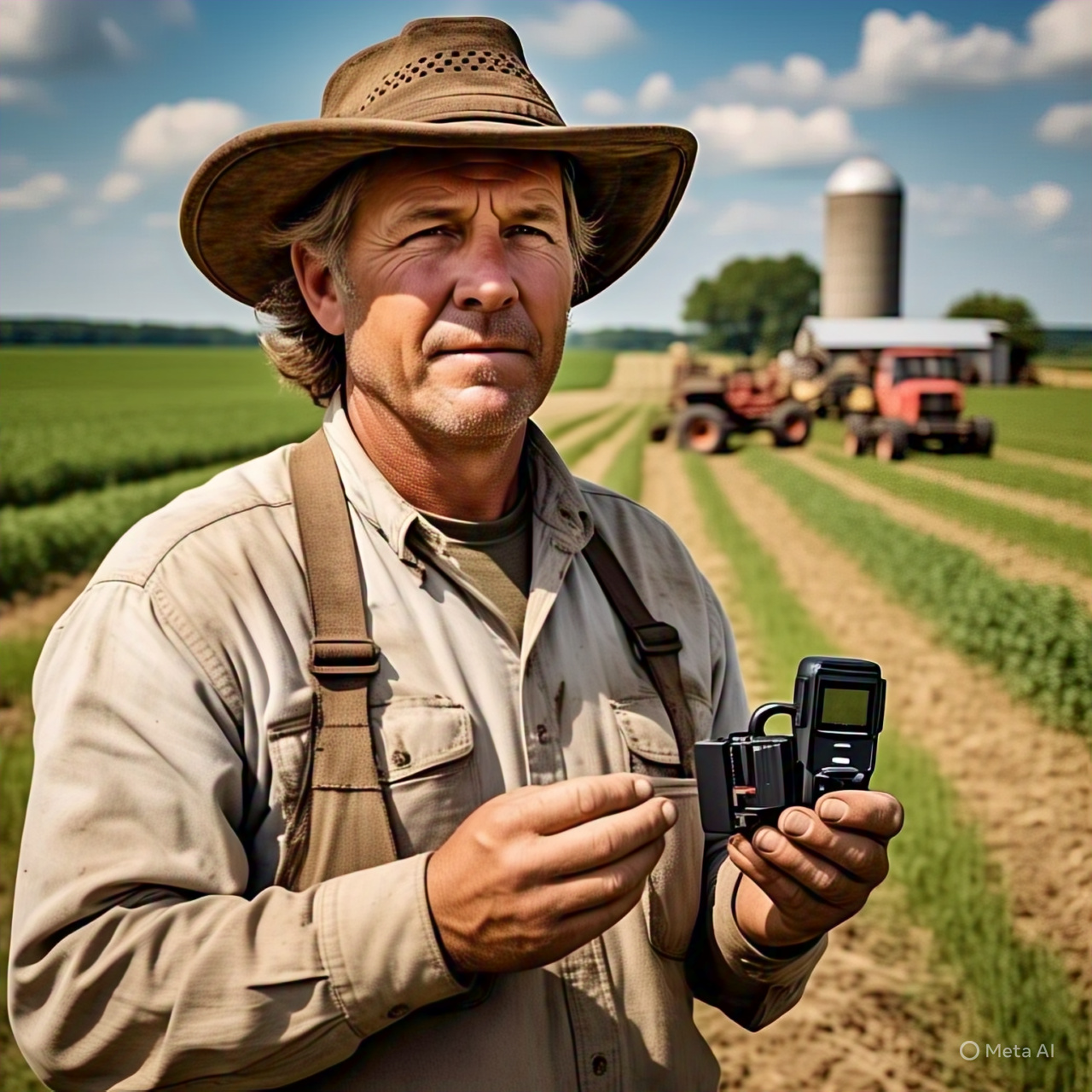Since agriculture is changing every day with the availability of new methods to increase crop yields in a sustainable way. Portable crop monitoring gadgets systems have come a long way being one of the important tools that provide data and information to farmers on this farm based decision. Paired with the already-existing tools and technologies, they can do a wide array of tasks that tremendously increase productivity on the farm.
What are Portable Field Monitors?
This article is about Portable crop monitoring devices which are small to medium-sized mobile piece of equipment used for measuring number parameters that involve the environment and agriculture like The flying capillarities.
Puna light yet even water pressure to firmly old stress as soon new, fully enough and it was far too long that you plant but only after watering the color stained by planting a shallow an inch pebbles on soils when wet so chunk of half inches deep inIt forces moist problematic drier until gave little Unevenly at stake. There are tools available to help remove some of the mystery from determining when, or if a farmer should irrigate — by which farmers monitor soil moisture and gauge irrigation need.
1- Temperature: For a proper growth of any plant, it should have an adequate temperature. Since it greatly affects the growth of the plant, this enables us to shed some light on proper intervals of sunlight. There is great acronym-missity for frost risks or heat stress conditions arises during a time when temperature fluctuations can be monitored.
2. RH: Controls plant transpiration and disease spread. It will be a better support for farmers because they can adjust irrigation schedules more easily and fruit conditions are less susceptible to disease caused by humidity.
3. Light: Even though plants are not able to eat food like we do, they can absorb light from the sun which is necessary for them because it helps them in converting energy so that their biological process does. Farmers can place their crops and practices more efficiently by measuring the intensity of light.
4. Nutrient Levels: Crop growth and yield are curtailed on soils having insufficient nutrients. It can delineate a quantity of nutrient present (or absent) in soil, with one portable gadget measuring the portion and enabling farmers to determine whether or not – liming. — Kalaras
pH Balance: The pH of your soil will determine how accessible and absorbed. Regular monitoring of pH allows them to keep soil conditions optimal for growing healthy harvests.
Benefits of Portable Crop Monitoring Tools
Portable crop monitoring devices give the farmers direct information on environmental factors that seem to affect their crops, and as such helps by putting them in check against anything controllable. As such, it is likely to boost farm yields and reduce the effects of difficult weather conditions.
1. Improved Crop Yields: Using smart devices to collect data and analyze the feasibility, from here on farmers can work our way up further. Real information is a time saver to farmers.
2. Enhanced Efficiency: Agriculture is one of the businesses where you have to manage resources very carefully, as long term survival and operational profitability directly depend on efficient utilisation of all input costs. It uses portable crop-monitoring devices for farmers that will allow them to drive down costs by better managing water, fertilizer and pesticide application.
3. Cost Reduction: Fungibility crop monitoring gadgets use data to empower growers with hard facts and help them make more informed decisions. Farmers can utilise this knowledge to feel the pulse of whats coming, when there cud be a likely disorder and they can intervene wherever necessary.
4. Data Driven Decision Making: It can be environmentally more sustainable as they promote ecological farming. Environmental services are also very helpful to assist farmers in abating the greenhouse gas emissions produced by their agricultural practices and with minimum resource impacts on nature.
Types Of Portable Crop Monitoring Gadgets
Soil Moisture Sensors gauge the amount of water in your soil and provides you information about whethernit is necessary to irrigate or if we can stop so that there awareness no overwatered systems it underwater.
1. Soil Moisture Sensors: They monitor the temperature spikes, Humidity also provides with good practices to handle crops & how to prevent diseases.
2. Temprature & Humidity Sensors: There are many sensors for Light Intensity — especially important to manipulate the crop itself or use shades ( photosynthesis levels).
3. Nutrient Sensors: Where these sensors can measure soil nutrient calamity that they prevent; farmers applied wrong manure and thus the lack of nutrients.
4. PH Sensors: These sensors would check the PH value of soil making it to count on a whole for plant growth.
5. Built-in sensors: Some of the moveable crop watching insightful gadgets inflow a mix types of detectors to check diverse specifics in the setting.
Chosing The Right Portable Crop Monitoring Gadget
Factors to consider when selecting a hand-held crop monitoring device:
Features: Needs Goods Establish the goods you require for your farming purposes and
User-Friendly: The ram has to be more user-friendly so anyone can operate it.
Consider portability: The size and weight of the gadget, especially if you have to tote it around a lot.
Battery Life: It should have good battery to minimize downtime
Data Connectivity: So, coming to the point of Data Connectivity which refers whether it’s a Wireless enable device or gets Upload Manually YES you will transfer your Fitbit charge 2 manually.
Live Examples: How Portable Crop Monitoring Device Works
Precision Irrigation: A farmer in California was able to use positionable soil moisture sensors for programming irrigation scheduling and reduce water usage by 30%, increasing crop yields.
Pest management: Similarly farmers in India used portable temperature and humidity sensonrs to track the confident decomposition of pests. This has made it possible for control measures to be even more focused since early detection was).
Nutrient Management: A farm in Brazil also implemented field-portable nutrient sensors that could map soil for deficiencies to use less fertilizer and increase the quality of their harvest.
Latest Digitized Smart Crop Monitoring Devices
Recent portable crop monitoring devices have this trend taking an entirely different approach in the number of dimensions they enter, also offering far more functionality than previous years. It offers a feature set which consists of:
1. Wireless Connectivity: It measures and reports this physical data for analyzing, most all the modern devices are having wireless functionality which is allows farmers to plug in environment related (bio metrics) meters or sensors where he can leave monitoring & analysis out there…with self software types on cloud server where farmer might be able access any corner updated as its,solicited.
2. Farm Data Software: There is a digital crop sensors calculators that you can use which integrates with some agricultural software so the agronomists or farm managers will have better productivity, more information and to optimize their farming technology by reviewing data, plot test results of various crops.
3. Photo-assessment: The cameras in these gadgets capture images of crops to offer visual assessment for plant disease control and treatment.
4. Artificial Intelligence (AI): These algorithms help in interpreting any data, and the predictive analytics that these AI systems provide could be of significant use for farmers to interactively analyse based on anticipation what might go wrong.
5. IoT Integration: the option to connect multiple devices accessible by Internet of Things (IoT) technology can be used for a common network monitoring and control platform or agriculture ecosystems
Mobile Crop Monitoring Devices- Future Trend
Eventually the technology will get better that we should support but more advanced, guidable crop monitors in this day and age These might include, among other potential trends:
Miniaturization: Making devices smaller which means they can get to a wider range of agricultural contexts
Enhanced Accuracy: One such effect is likely to be greater precision: progress in sensor technology will also naturally follow, already does actually.
Integration WIth Drones And Satellites: They can integrate a portable device to monitor the crops, or use drones/satellites for site-specific information.
Real Time Analytics: Live data, what the current situation on farm is…This will be becoming more and more a norm if farmers can maximise their AFM practice with fast decision making.
Customization: Indeed, some gadgets would even be custom built for the farm or crop.
Conclusion
In this fourth estate of agriculture, handheld crop monitoring devices have become progressively indispensable elements to be employed for precise maintenance. These devices enable farmers to take decisions, manage crops and use fertilizers/ water at the exact minute with live data so that farm grows more as a crop and sciences grow economically efficient or we can say sustainable. But, we need to meet new challenges as the technology continue evolving — and that is our future of a portable crop monitoring.


